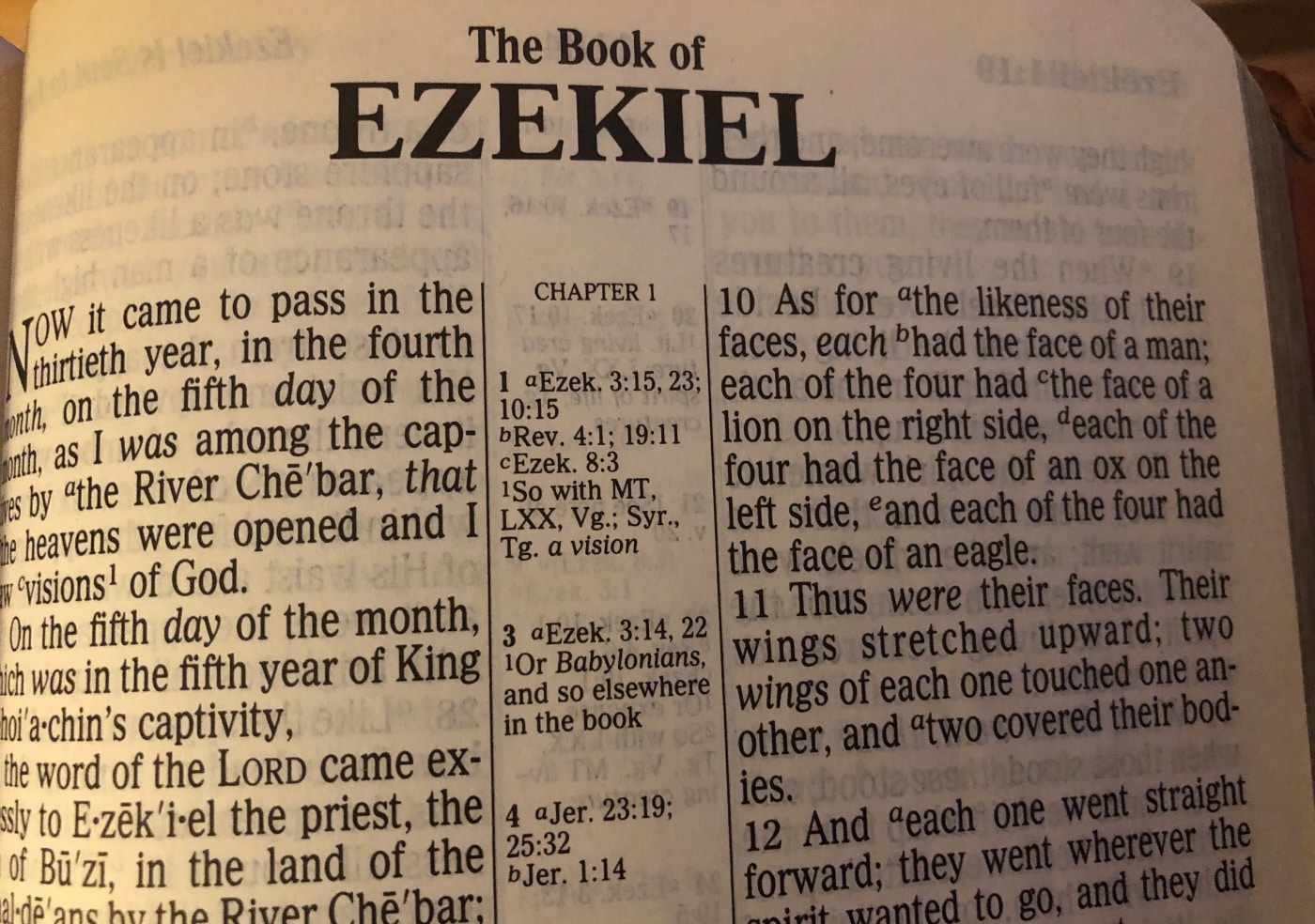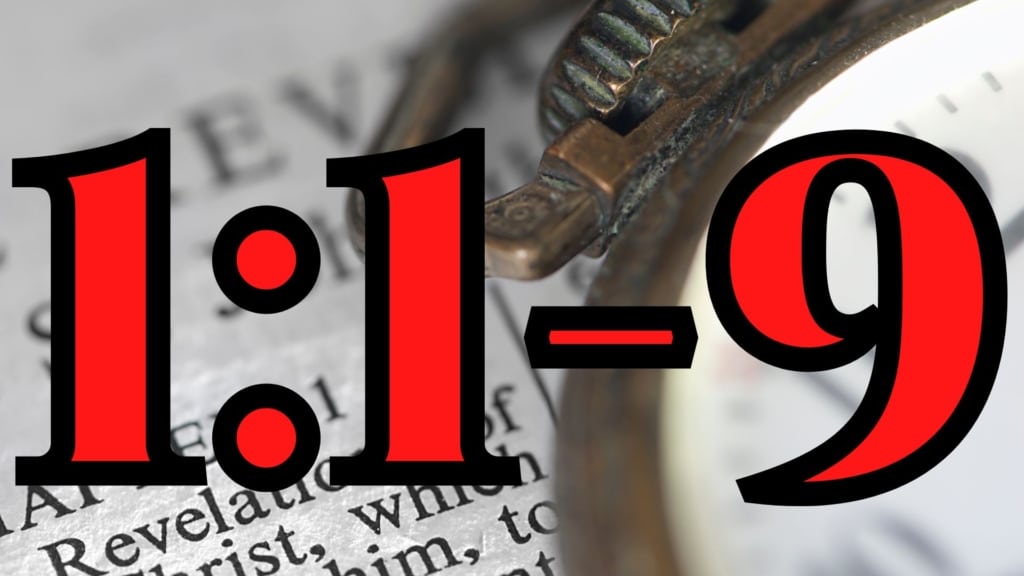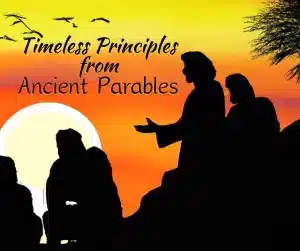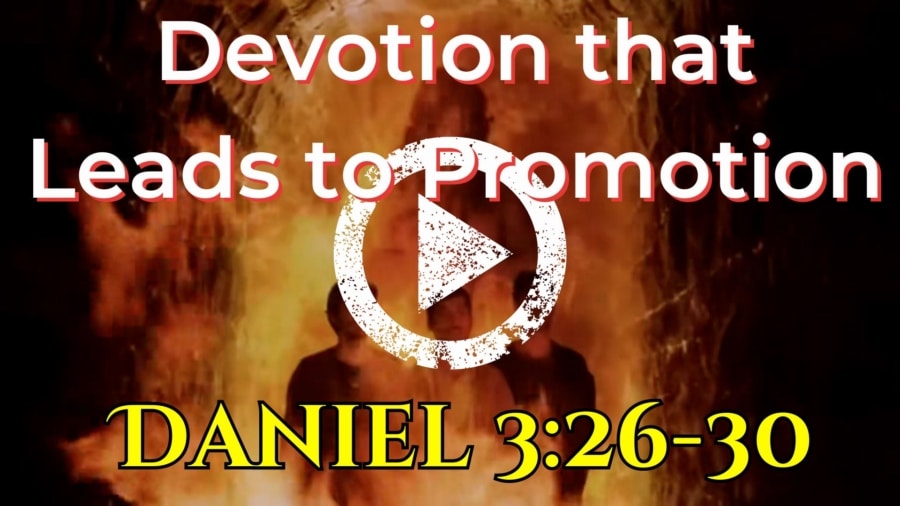>>>Notes for Revelation can be found HERE <<<
The three-fold outline of the book Revelation one is found in verse 1:19. Notice that Jesus says, talking to John, “Write the things that you have seen, the things which are, and the things that shall take place after these things.” If you look through the Book of Revelation, you’ll find that the phrase “after these things” is repeated over and over. And why is that? I think John is emphasizing to us that there is an orderly development of how things are going to happen. Some of it’s difficult to understand. Some of it we probably can’t fully grasp. But John wants us to understand that what is coming during the seven years of tribulation is going to be a very orderly, systematic judgment of God on the Earth. So he says, “Write the things that you have seen,” in the past tense. Right? So, what has John seen in the past in Revelation chapter one? The vision of Christ. He’s recorded that for us. “And the things which are” represent chapters two and three which deals with the seven churches of Asia. “The things that will take place after this,” represent Chapters four through 22. So, John really gives us his own outline. And if we just follow that outline, it’ll save us from a lot of confusion.
In the first few chapters, we have the seven churches as John ministered to them. In Chapters four and five, we see the church in heaven. There are certain things that are said that tell us that that can only be the church in heaven, which fits with our understanding of the rapture of the church. What do we read in Revelation 4:1? “I heard a voice saying, ‘Come up here.’”. Then in Chapters six through 19, we have the tribulation period itself. It’s very interesting to notice, the word church occurs 19 times in the first three chapters. It does not occur from Chapters six to 19 — the section that deals with the tribulation period. Instead, who do we read about? The nation of Israel. Remember that Paul tells us in Romans 11:25. “Blindness, in part, has happened to Israel.” God is faithful to His promises; what about the nation of Israel? Is God finished with the nation of Israel? Their time is yet coming, and that’s going to be the tribulation period. So, in chapter six through 19, we read about Israel. We read about the tribes. We read about Jerusalem. The whole focus goes back to the promised land.
So let’s go back to Revelation 1:1. “The revelation of Jesus Christ, which God gave to Him to show His servants things that must shortly take place and He Jesus sent and signify it by His Angel to his servant, John.” So, this book has been passed down from the Father to the Son to an angel to John. “Who bore witness of the Word of God in the testimony of Jesus Christ to all things that He saw. Blessed are those that read and hear the words of this prophecy and keep the things that are written in it for the time is near.” Because the Book of Revelation deals with everything from the time of John till the end of the Kingdom. No matter where you live in that time, the time is near because whatever is next to come is going to come and it’s going to come quickly. We notice several purposes behind the book: 1) to reveal Jesus Christ, 2) to reveal the course history, 3) to finish John’s testimony, and 4) to bless those who study the book and not only study but obey the book.
John identifies himself now in Revelation 1:4, “John to the seven churches which are in Asia.” This a typical opening of a letter in the ancient world; you identified yourself first and then identified who you’re writing to. “Grace to you and peace from Him, who is and who was and who is to come. And from the seven spirits who are before the throne.” So, what is “who is and who was and who is to come?” They mean that He’s infinite, and eternal. “The seven spirits before his throne” harkens to Isaiah 11:2, which lists the spirits of God having seven characteristics. So essentially, he’s talking about the Holy Spirit. The interesting thing to me at this point, in the first four versus we have the Father, we have the Son, we have the Holy Spirit, and they’re all sending greetings to us. They’re all working for our spiritual well-being.
Revelation 1:5 says, “From Jesus Christ, the faithful witness, the first born from the day of the ruler over the kings of the earth. To him who loved us and washed us from our sins in his own blood.” This is talking about the finished work of Christ on the cross, the one who provided for us our so great salvation. Revelation 1:6 should really excite us, “and has made us kings and priests.” In all the Old Testament, you never read of a prophet, priest, and king together. Jesus is prophet, priest, and king. Here, we’re told, “He has made us kings and priest.” You can go to 1st Peter 2:9, where Peter reminds us that we are a royal priesthood. There was no royal priesthood in the Old Testament, with one exception: Melchizedek the King priest.
Revelation 1:7 says, “Behold, He is coming with clouds.” I don’t know about you, but I long for it more and pray for it more every day. “He is coming with clouds and every I will see him. Even they who pierced him, and all the tribes of the earth will mourn because of him.” Which coming is John talking about — the Rapture or Jesus’ second coming? Ask yourself the question, at the rapture will every eye see Him? No, not unbelievers. It’s going to be a secret departure. They will not see him. We will simply be gone. So, we know we’re talking here about the second coming. “All the tribes in the earth will mourn because of him.” Revelation 1:8 says, “I am the alpha and the omega, the beginning and the end says Lord.” Which “beginning” is this? Go back as far as you want. “In the beginning, God created the heavens and the earth.” That’s the beginning of creation. And then we have in John 1:1, “ In the beginning was the word.” What beginning is he talking about? As far back as you want to go into eternity past, and whatever beginning you can imagine and He was there. That’s the one “who was.” In first John 1:1 says, “That which you heard from the beginning.” You might remember too in Mark 1:1, “The beginning of the gospel of Jesus Christ,” a different beginning. Here in Revelation 1:8, the Lord says, “I am the beginning, and the end says the Lord, who is and who was and who is to come. The Almighty.” What amazing statement of His dignity and glory and majesty.
In Revelation 1:9, John begins to describe for his congregations the conditions of his vision. “I, John, your brother and companion in the tribulation and kingdom and patience of Jesus Christ.” We’re all in this together as children of God. He continues, “I was on the island that is called Patmos” off the coast of Turkey, “for the word of God and for the testimony of Jesus Christ.” In other words, under persecution under Emperor Domitian, John was having too much effect, just like Paul was earlier. But unlike Paul, who was executed for his testimony, Domitian just shut him away on the Isle of Pattern of Patmos so John could write Revelation.
Gene Cunningham - September 25, 2003
Ezekiel #9

Justice is a characteristic of God. Righteous and Justice comprise Holiness (Det 32:4, Isa 45:21). Mercy is dependent on Justice executed on the cross -- He judged His own Son. Justice is in fact an act of Mercy. If we don't draw near in Grace, He'll draw near in Justice. It's a fearful thing to fall into the hands of a living God -- His discipline begins with His own house. Ezekiel 8 Outline - "the Holy Jealousy of God"; Ezekiel 9 - "the Glory of God Departs". Ezekiel 10 - "Ichabod - the Glory of God departs". God's jealousy with our areas of idolatry (Jam 4:5, Eph 4:30). Gold and faith are refined through fire (1Pe 1:7). The Glory and jealousy of God was provoked by the image of the sex God Ashteroth in the temple (2Ki 21:7, Eze 8:1-6). Israel worshiped animals (Eze 8:7-10). Israel's elders worshiped the idols in their heart (Eze 8:11-12; Rom 1:23). Jaazaniah brother delivered Jeremiah (Jer 26:24) his nephew was a believer (Jer 39:14) - faith doesn't run in families God knows everything in our hearts (Heb 4:12-14). Do I have an image of jealousy in our hearts? The father of Jaazaniah was a Godly man (2Ki 22:8-11). Tammuz was the idol son of Nimrod who was killed -- the fertility god of the Sumerians. Tammuz dies and his sister Ishtar rescues/resurrects him then marries him -- the beginning of easter. The priests were also worshipping the sun. (Eze 8:16, 2Ch 29:6) Violence is a characteristic of a degenerate nation (Eze 8:17). Point of no return had been reached (Eze 8:18). Messiah is referred to "the branch" (Mat 2:22-23). They treated the promised messiah with the utmost of contempt (Eze 8:17). God calls for the angelic executioners as the glory of God departs (Eze 9:1-3). Judgment begins with the house of God (Eze 9:7, 1Pe 4:17). The Glory departs from the throne to the threshold (Eze 10:4); then threshold to the East Gate (Eze 10:18-19); then East Gate to the Mount of Olives (Eze 11:23). Before being arrested, Jesus retraces the steps of the Glory then pronounces judgment (Mat 23:37, Mat 24:3, Joh 17:4)
Scripture References: Ezekiel 10:4, Ezekiel 8:7-10, Ezekiel 8:16, Ezekiel 9:7, Ezekiel 8:1-6, John 17:4, Hebrews 4:12-14, Ezekiel 9:1-3, Ephesians 4:30, Matthew 24:3, Jeremiah 39:14, Ezekiel 8:17, James 4:5, Matthew 23:37, Jeremiah 26:24, Matthew 2:22-23, Daniel 45:21, Ezekiel 11:23, Romans 1:23, Ezekiel 8:18, Isaiah 45:21, Ezekiel 10:18-19, Ezekiel 8:11-12, Ezekiel 8:17, Deuteronomy 32:4
From Series: "Ezekiel - 2002"
Ezekiel's vision of God's glory effected his life.






























